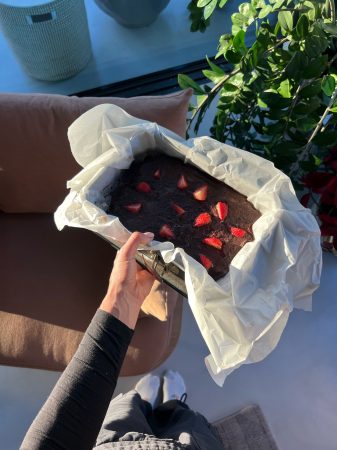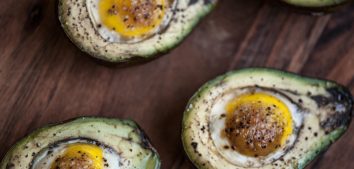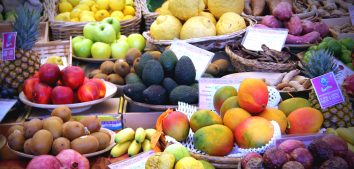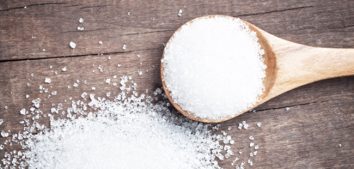
Sugar Cravings
I often see, especially in women, snacking on sweets after a filling dinner. Have you wondered what could be causing this? Are these just cravings? Nutrition mistakes? Lack of proper ingredients in the diet? Or maybe a vitamin deficiency? There is no clear answer. Everyone has different reasons. However, it is good to find them because snacking on sweets is simply an unhealthy eating habit.
Reaching for sweet snacks is most often not caused by hunger, but by the desire to give yourself temporary comfort. Highly palatable foods stimulate the brain’s reward system and activate specific areas of the central nervous system. We give the body a short-term sense of relief, joy and mood improvement, which is why the craving for sweets often appears in situations of strong emotional tension.
It is worth noting that the products we reach for most often in such moments are not only a source of sugar, but also fats (especially saturated fatty acids and trans fatty acids), salt, artificial flavors, dyes, and preservatives. Thanks to the appropriate combination of these ingredients, the product becomes attractive in terms of taste.
What Are the Most Common Causes of Sugar Cravings?
- lack of regeneration, chronic fatigue
- insufficient sleep
- unbalanced diet, poor in macronutrients, vitamins and minerals
- zbyt mała ilość “zdrowych” tłuszczów w diecie
- carbohydrate metabolism disorders, e.g. insulin resistance, diabetes
- blood sugar fluctuations
- hormonal disorders (elevated or too low levels of cortisol, i.e. the “stress hormone”, too little happiness hormones – dopamine, serotonin)

What Steps Should You Take?
Diet
First, you need to analyze your current diet.
It is worth paying attention to what carbohydrates we provide our body with. They should come from valuable products and be a source of complex carbohydrates, not simple ones. The breakdown of carbohydrates is due to the speed at which they are digested. Consumption of simple carbohydrates causes a rapid increase in blood glucose followed by a rapid decrease, which usually leads to the feeling of hunger and the desire for something sweet. For this reason, a significant part of our diet should be complex carbohydrates, which can be found in wholegrain cereal products (e.g. groats, rice, pasta, bran) or legumes (e.g. chickpeas, lentils, beans).
What’s more, eating sweets that have a high glycemic index (GI) causes a faster increase in blood glucose, and then its significant decrease, which in turn causes increased hunger. So instead of being and feeling full, we crave something, usually sweet. If you want to calm fluctuating blood sugar levels, try to choose foods with a low GI (less than 50).
Another important issue is to consider whether our diet contains enough protein and fats as they give us the feeling of satiety.
About 20-35% of energy in the diet should come from fats. The most important thing is the quality of the fat you eat. It is worth reaching for products rich in unsaturated fatty acids, such as: vegetable oils, olive oil, fatty fish or avocado. The diet should also include the right amount of protein – meat, fish, eggs, legumes – which will provide the amino acids necessary for example for the proper functioning of the brain. Protein makes you feel full longer.
Presumably, in many people, the reason for snacking on sweets is the lack of appropriate vitamins and minerals in the body. Most often, these are zinc, chromium and magnesium deficiencies, which in appropriate amounts reduce cravings for sweets. Introduce products containing the listed ingredients to your menu or, if necessary, use appropriate supplementation. It is worth taking blood tests in this direction and consulting a doctor.
If you do not know how to properly design your diet so that it provides all the necessary macronutrients, vitamins and minerals, I encourage you to familiarize yourself with the diet in my Diet & Training by Ann app 🙂

Get Enough Sleep 🙂
Nothing regenerates your body like a good night’s sleep does. Increasing stress during the day, too much caffeine (coffee, energy drinks), lack of sleep and rest. Add to this the lack of the already mentioned balanced diet and we have a complete set – the appetite starts growing, especially for sweets.
Another factor associated with regeneration through sleep is the problem with disturbed hormonal balance. It can also be a reason for snacking.
Lack of sleep, chronic fatigue, or oxidative stress can contribute to being overweight. Problems with losing excess weight appear. Why is this happening? During sleep, the body regenerates, rebuilds receptors, consolidates memory, etc. If this process is disturbed, hormones are secreted into the bloodstream, which are responsible for many functions, including proper body weight. The hormones we are talking about are leptin and ghrelin and they are responsible for satiety and hunger. The first of them – leptin, is secreted in fat cells and is responsible for suppressing hunger / appetite. Ghrelin, on the other hand, increases the feeling of hunger. Studies show that lack of sleep causes the secretion of ghrelin and a decrease in leptin levels, which causes a slowdown in metabolism and a constant feeling of hunger that is difficult to satisfy.
In ensuring proper regeneration and sleep, my Diet & Training by Ann application, and more specifically Sleepy Tales, can be really helpful. They will help you calm down, fall asleep, and improve the quality of your sleep. It is an ideal solution for people who have trouble sleeping. In turn, for all those who want to relax after a hard and stressful day, I recommend nature sounds or breathing exercises, which you can also find in the app in the Balance tab
Below are some practical tips for you on how to deal with the sugar cravings 😉
- Replace sweets such as cookies, cookies, ice cream, sweet sauces, with healthy homemade sweets and pastries. You will find recipes for my favorite snacks HERE 🙂
- Introduce spices to your menu that reduce cravings for sweets. First of all, CINNAMON, as well as chilli, ginger, cardamom, and cloves.
- Eat full meals without snacking in between. Be well organized. Work out how many meals you need throughout the day to eliminate snacking. This is an individual matter for each of us. Maybe it will be 3, or maybe 5 or even 6 meals – you know your body best.
- Stop boredom eating, and if you see that you are grabbing another snack after lunch and hanging around the kitchen looking for more, drink a glass of water and do 10 sit-ups ;))) Check it out – it really works!
- Drink plenty of water! About 1.5-2 liters a day.
- When you go grocery shopping, be sure to be full and always have a shopping list with you! Then you won’t get lost among the dangerous shelves with sweets;)
- Get rid of unhealthy sweets at home. Thanks to this, they will not tempt you in moments of weakness.
Remember that eating sweets is not a bad thing as long as you can set limits and choose snacks that are nutritious. After all, everyone can indulge in sweet pleasures from time to time 😉 The whole secret is not to overdo it, make good choices and pick healthier options of sweets, preferably those that you can prepare on your own.
Bibliography:
- DiNicolantonio J., O’Keefe J.H., Wilson W.L.: Sugar addiction: is it real? A narrative review. Br J Sports Med. 2018, 52(14): 910-913.
- Geiker NRW, Astrup A, Hjorth MF, Sjödin A, Pijls L, Markus CR. Does stress influence sleep patterns, food intake, weight gain, abdominal obesity and weight loss interventions and vice versa? Obes Rev. 2018 Jan;19(1):81-97.
- Gordon E., Ariel-Donges A.H., Bauman V., et al.: What Is the Evidence for “Food Addiction?” A Systematic Review. Nutrients. 2018, 10(4): 477.
- Markwald RR, Melanson EL, Smith MR, Higgins J, Perreault L, Eckel RH, Wright KP Jr. Impact of insufficient sleep on total daily energy expenditure, food intake, and weight gain. Proc Natl Acad Sci U S A. 2013, 110(14): 5695-700.
- Westwater M.L., Fletcher P.C., Ziauddeen H. Sugar addiction: the state of the science. Eur J Nutr. 2016, 55(2): 55-69.









Comments No Comments
Join the discussion…